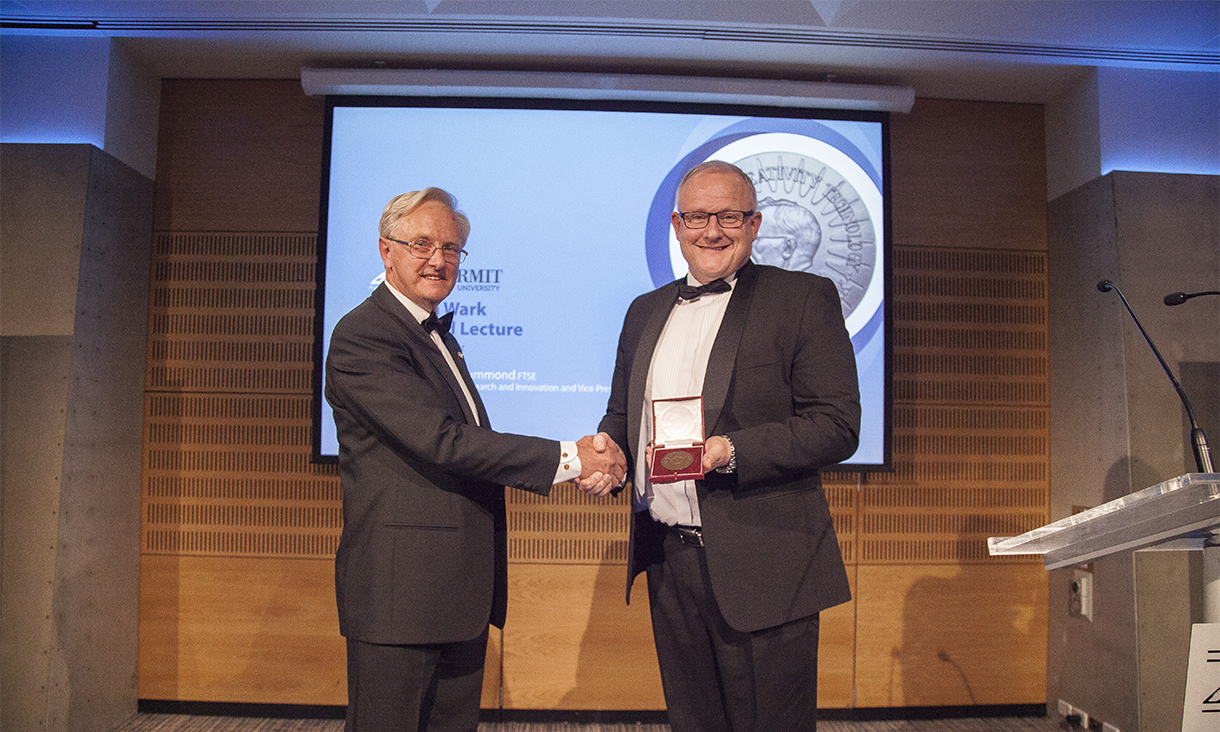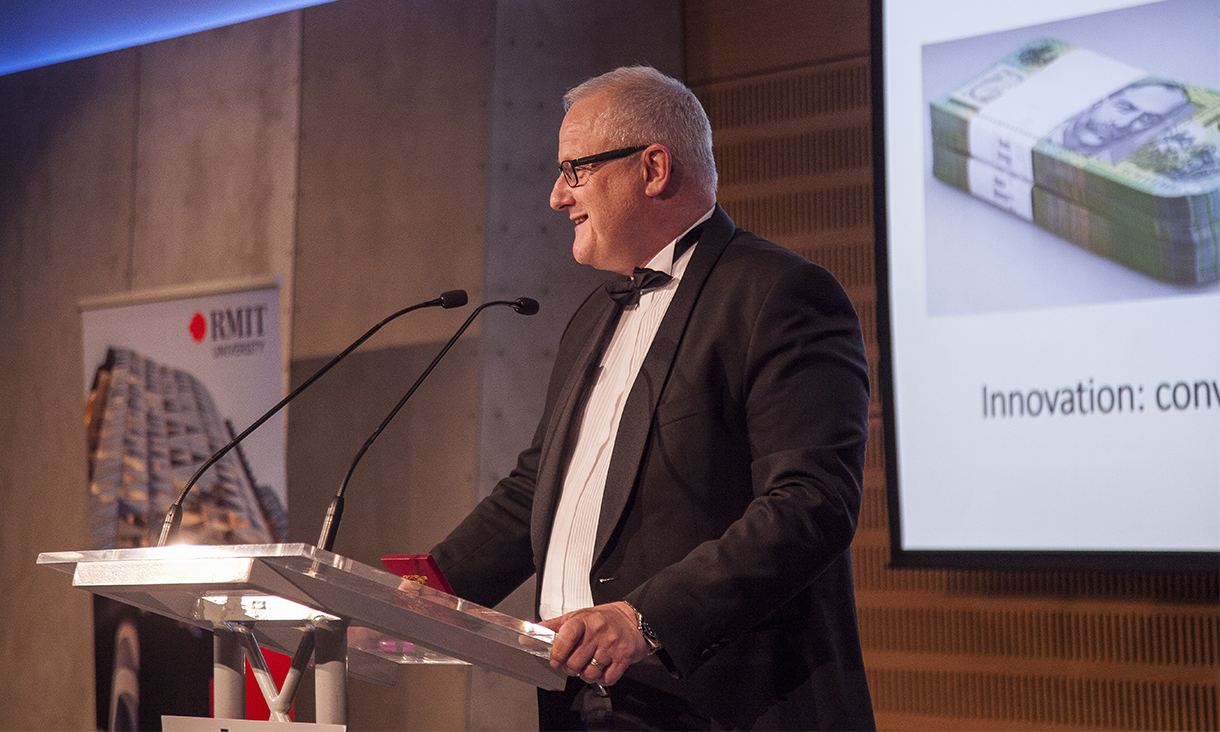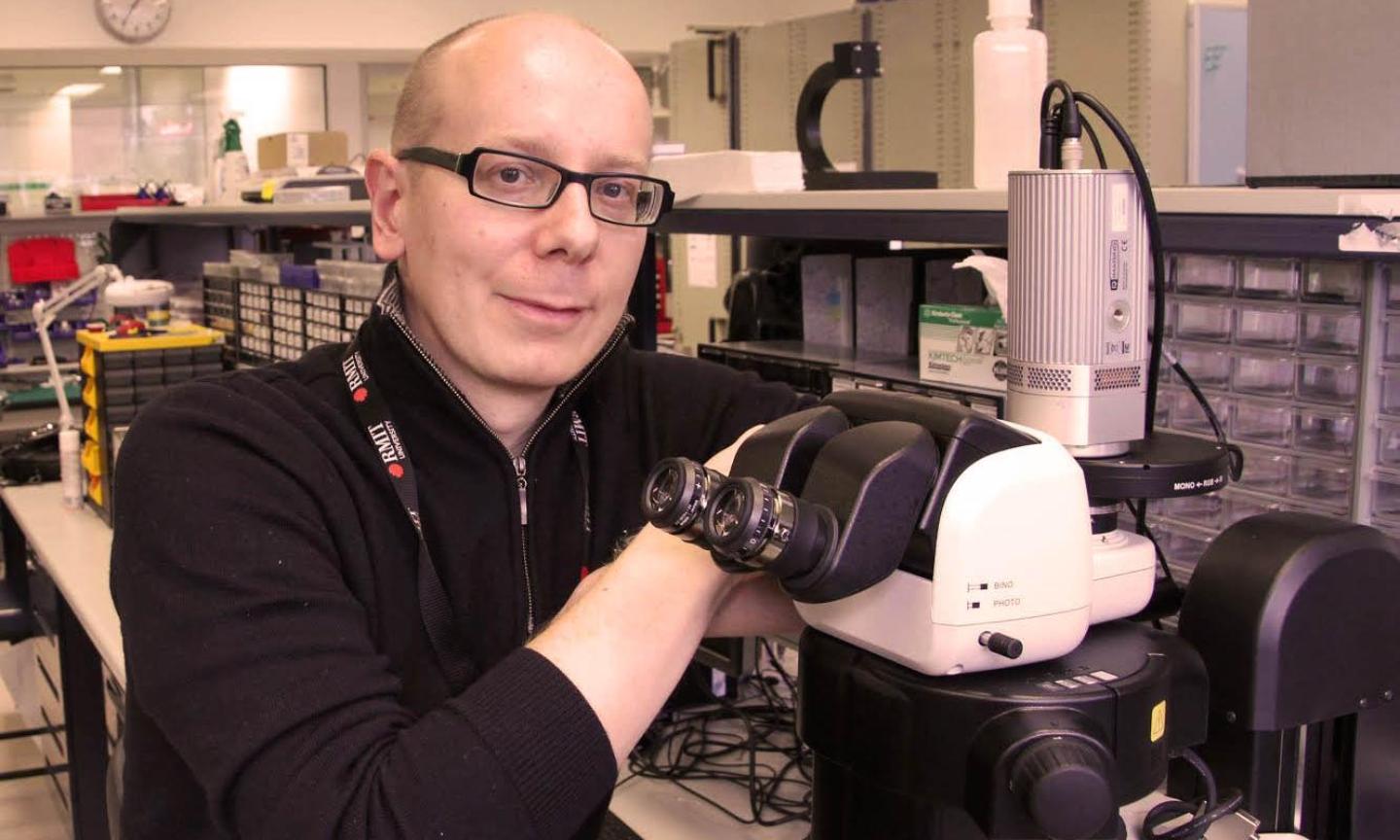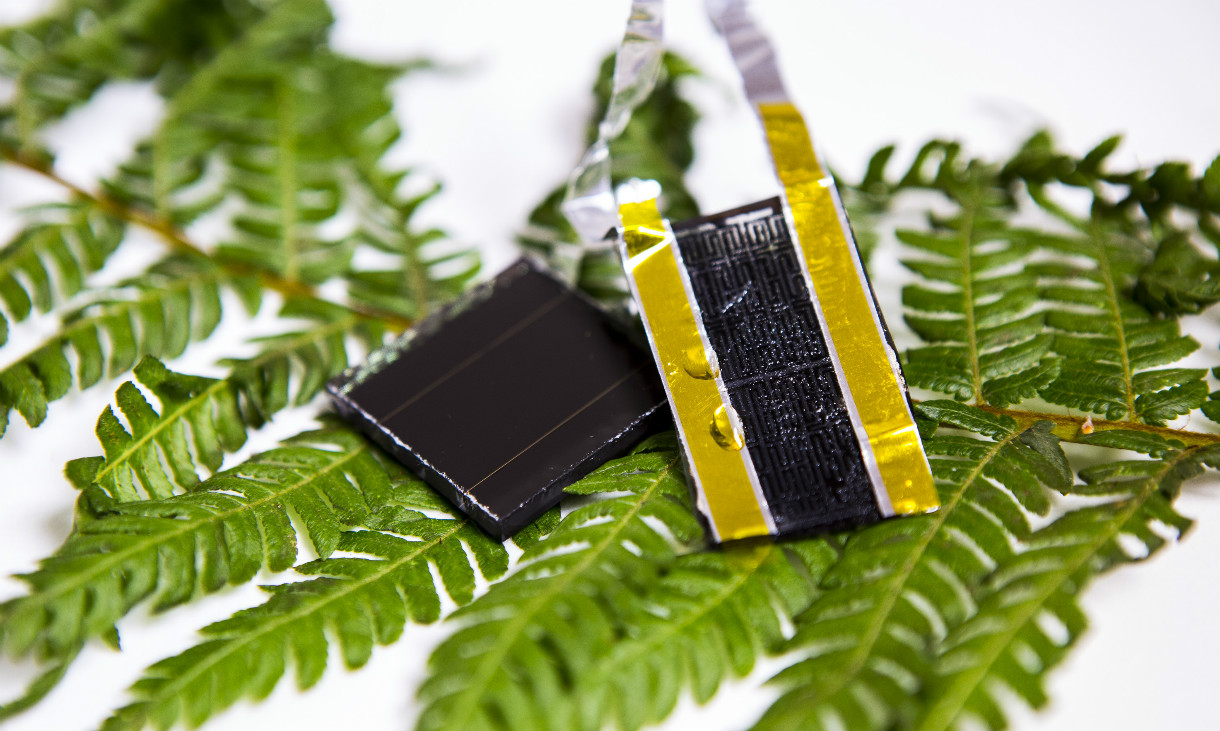Drummond said the award was recognition for all the wonderful people he’d worked with over the years.
“I’ve always just had an innate curiosity and that’s what drove me towards science from a very early age because it allowed me to satisfy that innate curiosity and discover things about the world around me,” he said.
“When I was at university I had one lecturer who was particularly inspiring, a person called Professor Tom Healy, and he gave me the drive to pursue the particular area of science that I’m now currently pursing.
“Science is a team game and I've been fortunate to work with outstanding people, including partners from other institutions and companies, and researchers and students in my own groups."
RMIT Vice-Chancellor and President, Martin Bean CBE said:
"Calum has shown outstanding ability to take new insights from his groundbreaking research and apply them to a wide range of real world problems, from biology to materials science, leading to innovative solutions.
"He has also been a valued mentor and sponsor of generations of Australian scientists and engineers.
"This is wonderful recognition of his lifetime passion for research and end-use applications that benefit Australia and help shape the world."
Key elements of Drummond's research and its impacts
Drummond's research has significantly increased the number of known organic molecules capable of self-assembling in solvents to form materials with highly ordered 2D and 3D internal nanostructures.
He has investigated how these materials can be used to enhance product formulations such as drug delivery vehicles, environmentally friendly off-shore oil well drilling fluids, waterproof recyclable paper coatings, household cleaning products, and specialty chemicals for the construction industry.
Drummond's scientific advances led to design rules that were used to invent two patented drug delivery technologies.
The technologies enable drugs to be encapsulated in the nanostructured material and diffuse in a controlled manner to treat cancerous tumours.
Drummond is now using the same design rules to help develop the next-generation theranostic agents – materials that can image specifically targeted diseased tissue while simultaneously treating it.
He was the inaugural Vice President Research at CAP-XX, a company that developed the world's most advanced commercial supercapacitors, built a manufacturing process for supercapacitors in Australia and has sold more than 30 million supercapacitor cells to date.
Prior to joining RMIT University in 2014, Drummond was Group Executive for Manufacturing, Materials and Minerals at CSIRO.
Story: Kate Milkins






